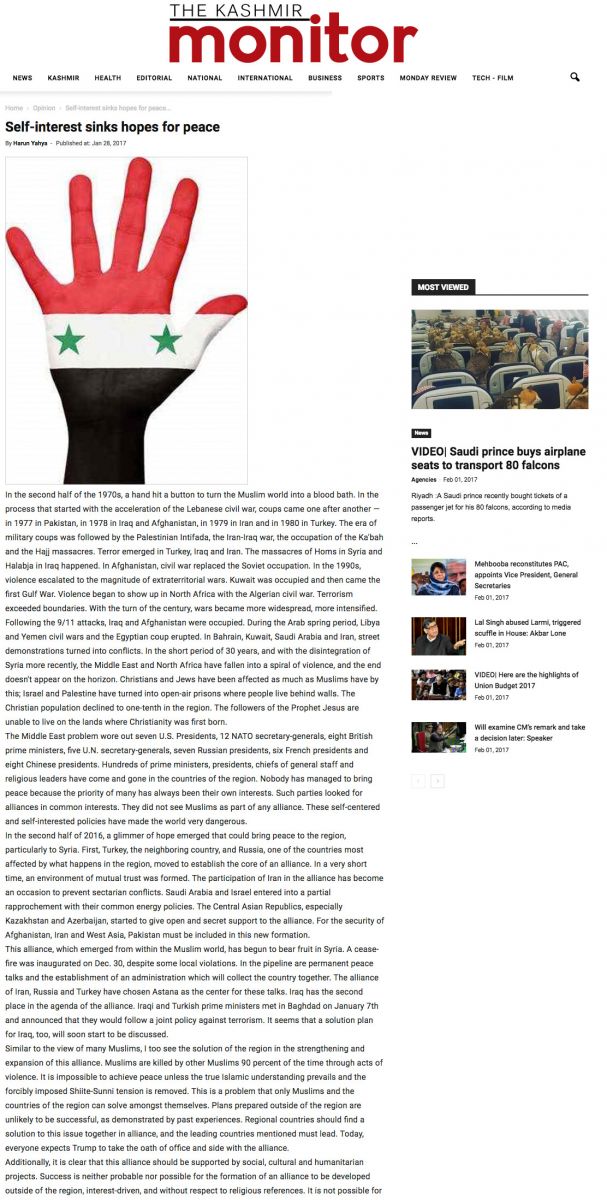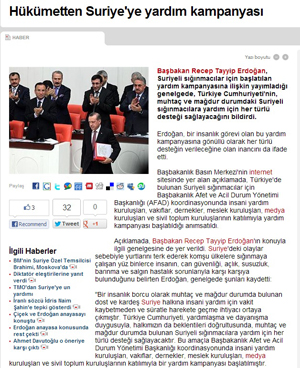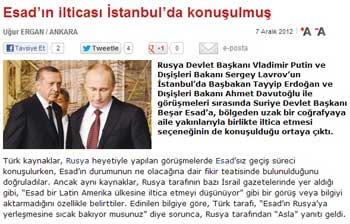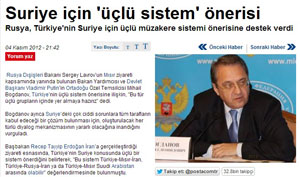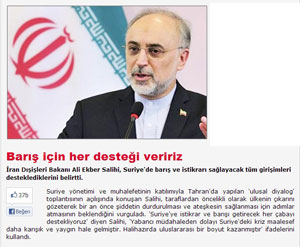Bigotry: The Dark Danger
Self-interest sinks hopes for peace
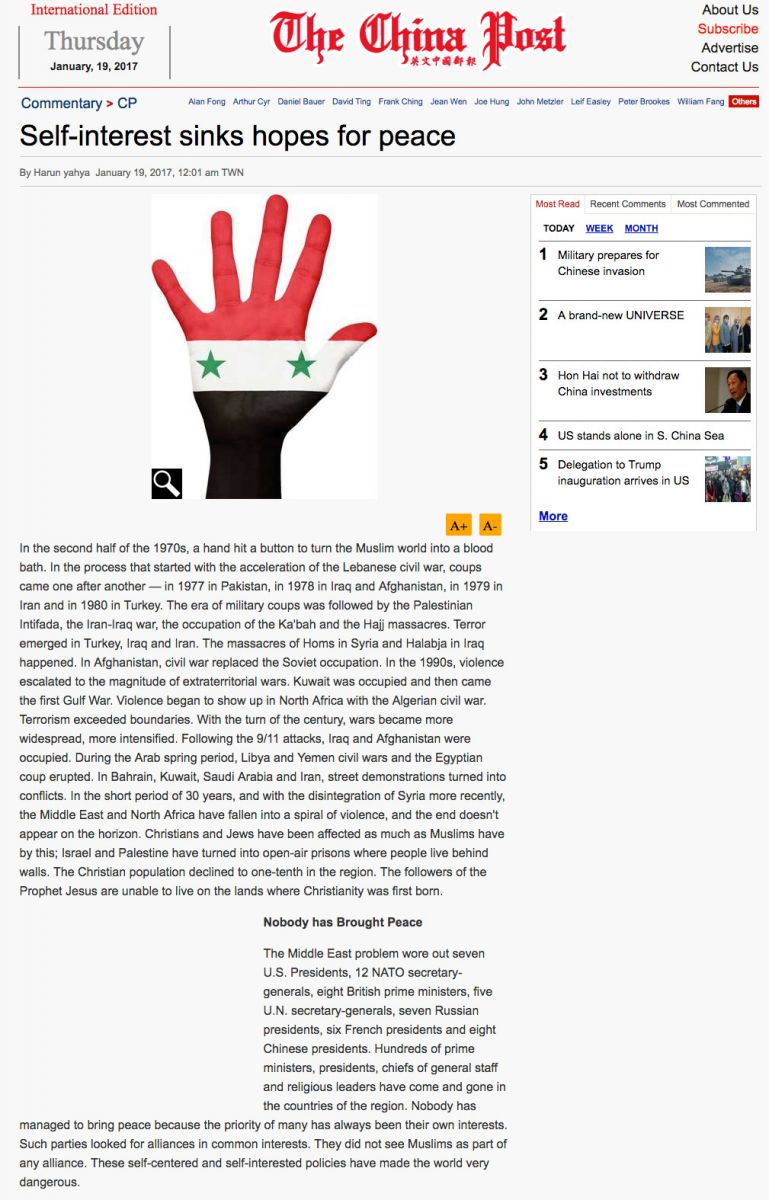
In the second half of the 1970s, a hand hit a button to turn the Muslim world into a blood bath. In the process that started with the acceleration of the Lebanese civil war, coups came one after another — in 1977 in Pakistan, in 1978 in Iraq and Afghanistan, in 1979 in Iran and in 1980 in Turkey. The era of military coups was followed by the Palestinian Intifada, the Iran-Iraq war, the occupation of the Ka'bah and the Hajj massacres. Terror emerged in Turkey, Iraq and Iran. The massacres of Homs in Syria and Halabja in Iraq happened. In Afghanistan, civil war replaced the Soviet occupation. In the 1990s, violence escalated to the magnitude of extraterritorial wars. Kuwait was occupied and then came the first Gulf War. Violence began to show up in North Africa with the Algerian civil war. Terrorism exceeded boundaries. With the turn of the century, wars became more widespread, more intensified. Following the 9/11 attacks, Iraq and Afghanistan were occupied. During the Arab spring period, Libya and Yemen civil wars and the Egyptian coup erupted. In Bahrain, Kuwait, Saudi Arabia and Iran, street demonstrations turned into conflicts. In the short period of 30 years, and with the disintegration of Syria more recently, the Middle East and North Africa have fallen into a spiral of violence, and the end doesn't appear on the horizon. Christians and Jews have been affected as much as Muslims have by this; Israel and Palestine have turned into open-air prisons where people live behind walls. The Christian population declined to one-tenth in the region. The followers of the Prophet Jesus are unable to live on the lands where Christianity was first born.
Nobody has Brought Peace
The Middle East problem wore out seven U.S. Presidents, 12 NATO secretary-generals, eight British prime ministers, five U.N. secretary-generals, seven Russian presidents, six French presidents and eight Chinese presidents. Hundreds of prime ministers, presidents, chiefs of general staff and religious leaders have come and gone in the countries of the region. Nobody has managed to bring peace because the priority of many has always been their own interests. Such parties looked for alliances in common interests. They did not see Muslims as part of any alliance. These self-centered and self-interested policies have made the world very dangerous.
In the second half of 2016, a glimmer of hope emerged that could bring peace to the region, particularly to Syria. First, Turkey, the neighboring country, and Russia, one of the countries most affected by what happens in the region, moved to establish the core of an alliance. In a very short time, an environment of mutual trust was formed. The participation of Iran in the alliance has become an occasion to prevent sectarian conflicts. Saudi Arabia and Israel entered into a partial rapprochement with their common energy policies. The Central Asian Republics, especially Kazakhstan and Azerbaijan, started to give open and secret support to the alliance. For the security of Afghanistan, Iran and West Asia, Pakistan must be included in this new formation.
Emerging Alliance
This alliance, which emerged from within the Muslim world, has begun to bear fruit in Syria. A cease-fire was inaugurated on Dec. 30, despite some local violations. In the pipeline are permanent peace talks and the establishment of an administration which will collect the country together. The alliance of Iran, Russia and Turkey have chosen Astana as the center for these talks. Iraq has the second place in the agenda of the alliance. Iraqi and Turkish prime ministers met in Baghdad on January 7th and announced that they would follow a joint policy against terrorism. It seems that a solution plan for Iraq, too, will soon start to be discussed.
Similar to the view of many Muslims, I too see the solution of the region in the strengthening and expansion of this alliance. Muslims are killed by other Muslims 90 percent of the time through acts of violence. It is impossible to achieve peace unless the true Islamic understanding prevails and the forcibly imposed Shiite-Sunni tension is removed. This is a problem that only Muslims and the countries of the region can solve amongst themselves. Plans prepared outside of the region are unlikely to be successful, as demonstrated by past experiences. Regional countries should find a solution to this issue together in alliance, and the leading countries mentioned must lead. Today, everyone expects Trump to take the oath of office and side with the alliance.
Additionally, it is clear that this alliance should be supported by social, cultural and humanitarian projects. Success is neither probable nor possible for the formation of an alliance to be developed outside of the region, interest-driven, and without respect to religious references. It is not possible for the cooperation between these countries in the Middle East to remain permanent without the reference for spiritual support, friendship, brotherhood, mutual love and respect. These are the common values of the people of the region, be they Muslim, Christian, Jew, Arab, Kurd, Turk, Alawite, Sunni, Shia or Nusayri. These values take absolute precedence over economic or political interests. Therefore, those who plan to redraw the map of the region and plan the future need to consider this fact.
There are people both within and outside the region who have been fueling and inciting this environment of war for nearly 40 years. They will not want peace. During the past month, dozens of provocations have been made to weaken the triple alliance. The security of Russia and Turkey is clearly threatened. The assassination of the Russian ambassador in Ankara was arranged to pit the two countries against each other. However, the mutual trust of the two nations frustrated this provocation. Only this environment of mutual trust and love will bring peace to the region. Otherwise, it will be an even more bloody period than the 21st century.
Adnan Oktar's piece in The China Post & The Kashmir Monitor:
http://www.chinapost.com.tw/commentary/china-post/special-/2017/01/19/489782/Self-interest-sinks.htm
http://www.kashmirmonitor.in/Details/116861/self-interest-sinks-hopes-for-peace
